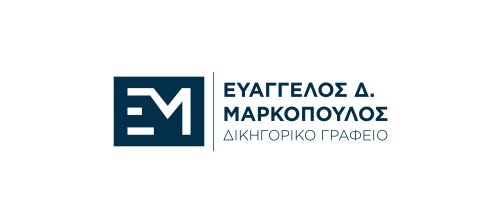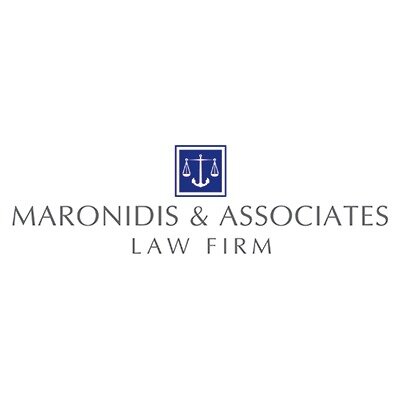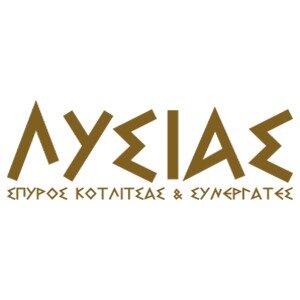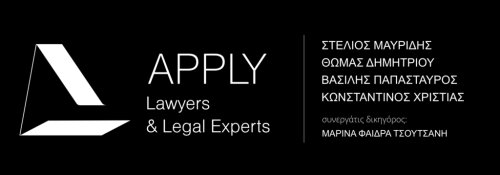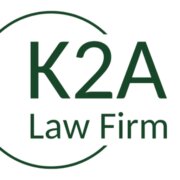Best Structured Finance Lawyers in Thessaloniki
Share your needs with us, get contacted by law firms.
Free. Takes 2 min.
List of the best lawyers in Thessaloniki, Greece
About Structured Finance Law in Thessaloniki, Greece
Structured finance refers to complex financial transactions designed to facilitate financing needs that cannot be easily met by conventional lending. In Thessaloniki, Greece's second largest city and a significant commercial hub, structured finance is commonly used in large-scale projects, real estate developments, infrastructure, and business investments. The field involves the use of advanced instruments such as asset-backed securities, securitization, syndicated loans, derivatives, and other customized products to manage risk, raise capital, and structure large deals.
Structured finance law in Thessaloniki intersects with several branches of Greek and European law, including commercial law, property law, banking regulations, and tax law. Legal professionals in this field help structure, negotiate, and document complex financial deals for businesses, investors, and institutions, ensuring full compliance with local and international regulations.
Why You May Need a Lawyer
Navigating structured finance transactions can be highly complex due to the intricate legal and financial considerations involved. Here are some common situations where seeking legal guidance is essential:
- Advising on large-scale commercial investments, mergers, or acquisitions
- Structuring and negotiating syndicated loans or credit facilities
- Packaging and securitizing assets such as commercial mortgages or loan portfolios
- Ensuring compliance with Greek and European financial regulations
- Drafting, reviewing, and negotiating contracts related to structured financial products
- Addressing cross-border finance and taxation considerations
- Managing debt restructuring or refinancing for distressed assets
- Representing clients in disputes involving complex financial arrangements
Local Laws Overview
Thessaloniki, as part of Greece, operates under the Greek legal framework, much of which is aligned with European Union directives and regulations due to Greece’s EU membership. Important legal aspects relevant to structured finance include:
- Banking Regulation: Regulated by the Hellenic Capital Market Commission and the Bank of Greece, all structured finance transactions must comply with Greek and EU banking laws.
- Securitization Law: Greece has specific statutes governing securitization. These outline how financial assets can be pooled and securities issued, including protection for investors and disclosure regulations.
- Contract Law: Greek Civil Code governs most contractual relationships, including those used in structured finance. Proper drafting and review are crucial to prevent future disputes.
- Taxation: All transactions must meet Greek tax regulations to avoid unexpected liabilities related to VAT, capital gains, and stamp duties.
- Corporate and Insolvency Law: Depending on the structure, deals may need to take into account company formation, mergers and acquisitions, and insolvency proceedings under Greek law.
For cross-border transactions, compliance with broader European Union financial regulations is also mandatory. Consulting a local expert ensures all aspects are handled correctly.
Frequently Asked Questions
What is structured finance, and how is it used in Thessaloniki?
Structured finance involves using complex financial instruments to support large investments or projects. In Thessaloniki, it is often used for real estate, business expansion, infrastructure projects, and asset management.
Is structured finance legal in Greece?
Yes, structured finance is legal in Greece and widely used, provided that all transactions comply with local and European financial laws and regulations.
Which authorities regulate structured finance activities in Thessaloniki?
The Hellenic Capital Market Commission and the Bank of Greece are the two primary regulatory authorities, alongside the Ministry of Finance regarding taxation.
What risks are associated with structured finance deals?
Risks include legal non-compliance, improper risk assessment, credit risk, counterparty risk, and potential tax liabilities if transactions are not properly structured.
Can structured finance be used by small and medium sized businesses?
While more common with large corporations or institutions, certain structured finance solutions, like syndicate loans or asset backed lending, can be tailored for small and medium sized businesses.
What role does a lawyer play in structured finance transactions?
Lawyers help structure the deal, negotiate and draft contracts, conduct due diligence, advise on compliance, and protect your interests throughout the process.
How do Greek tax laws affect structured finance?
Tax implications can be significant depending on the deal. Greek tax authorities may levy VAT, capital gains, or other duties. Legal guidance ensures you understand and plan for all applicable taxes.
How is asset securitization regulated in Greece?
Asset securitization is governed by specific Greek laws that require registration, disclosure, and investor protection measures. Legal compliance is essential for valid transactions.
Are there any restrictions on foreign investors in structured finance deals?
Generally, Greece welcomes foreign investment, but certain sectors may have additional regulatory requirements or reporting obligations for non Greek residents.
What happens if a party defaults on a structured finance agreement?
The remedies and procedures depend on the contract’s terms and Greek insolvency laws. Legal action, restructuring, or asset recovery may be necessary, and a lawyer helps manage these processes.
Additional Resources
If you require more information or need guidance, the following resources can be helpful:
- Hellenic Capital Market Commission: Oversees financial markets, including structured finance regulations.
- Bank of Greece: Regulates banks and financial institutions.
- Greek Ministry of Finance: Provides guidance on taxation and investment regulations.
- Thessaloniki Bar Association: Directory of qualified legal professionals in Thessaloniki.
- Greek Law Library: Access to Greek statutes, codes, and relevant financial laws.
Next Steps
If you are considering or involved in a structured finance transaction in Thessaloniki, the following steps are recommended:
- Consult with a local law firm or legal professional experienced in structured finance and related regulations.
- Prepare all relevant business and financial documentation so your lawyer can assess your needs efficiently.
- Discuss your objectives and any potential risks with your lawyer so they can help structure the most beneficial and compliant transaction.
- Ensure all contracts and transaction documents are reviewed by your lawyer for accuracy and legal sufficiency.
- Keep records of all communications and agreements in case of future disputes or audits.
Seeking early legal advice helps prevent costly mistakes and ensures your transaction is both efficient and compliant. A knowledgeable lawyer in Thessaloniki can guide you through every aspect of structured finance law and protect your interests every step of the way.
Lawzana helps you find the best lawyers and law firms in Thessaloniki through a curated and pre-screened list of qualified legal professionals. Our platform offers rankings and detailed profiles of attorneys and law firms, allowing you to compare based on practice areas, including Structured Finance, experience, and client feedback.
Each profile includes a description of the firm's areas of practice, client reviews, team members and partners, year of establishment, spoken languages, office locations, contact information, social media presence, and any published articles or resources. Most firms on our platform speak English and are experienced in both local and international legal matters.
Get a quote from top-rated law firms in Thessaloniki, Greece — quickly, securely, and without unnecessary hassle.
Disclaimer:
The information provided on this page is for general informational purposes only and does not constitute legal advice. While we strive to ensure the accuracy and relevance of the content, legal information may change over time, and interpretations of the law can vary. You should always consult with a qualified legal professional for advice specific to your situation.
We disclaim all liability for actions taken or not taken based on the content of this page. If you believe any information is incorrect or outdated, please contact us, and we will review and update it where appropriate.



